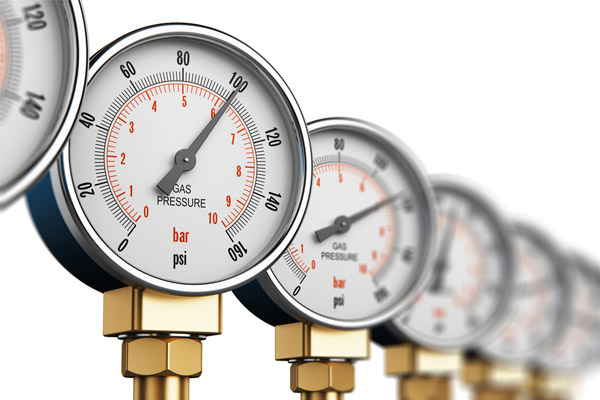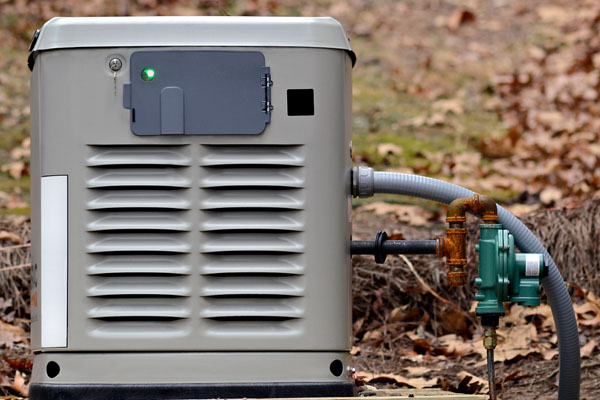10 Reasons Why Your Standby Generator Won’t Start

Standby generators help ensure your home has power during outages. Still, they will encounter a problem from time to time, like all machineries do. A common problem is when the generator won’t start properly. Keep reading to learn 10 of the usual culprits behind a generator that won’t start. These problems include fuel-linked issues, battery problems, neglecting maintenance, and malfunctioning components.
10 Reasons Why Your Standby Generator Won’t Start
Contents
- 1 10 Reasons Why Your Standby Generator Won’t Start
- 1.1 Whole-House Generator Fuel Problems
- 1.2 Backup Generator Battery Failure
- 1.3 Generator Control Panel Issues
- 1.4 Blocked Generator Fuel Lines
- 1.5 Faulty Spark Plugs
- 1.6 Air Filter Issues
- 1.7 Whole-House Generator Coolant Levels
- 1.8 Outdated Generator Software
- 1.9 Starter Motor Failure
- 1.10 Poor Standby Generator Maintenance
- 1.11 Tips for Troubleshooting and Preventing Power Generator Failures
- 1.12 Conclusion
- 2 Call McAllister Energy For All Your Standby Generator Requirements
This article lists the top 10 reasons your standby generator fails to start.
Related Article: Common Whole-House Generator Problems
Whole-House Generator Fuel Problems

Fuel is essential in the generator’s operation as it is the energy source powering its engine. This enables the generator to produce electricity. Here are several of the common fuel-associated problems and how they affect the operation of your standby generator:
- Low Fuel: The generator will turn off during operation or not start when it has no sufficient fuel. Ensure that the fuel tank has enough fuel for an uninterrupted power supply. Track the fuel level regularly so you can refuel when necessary, especially during prolonged power outages.
- Poor Fuel Quality: The quality of the fuel your generator consumes can significantly affect its performance. The generator’s engine can experience problems with contaminated or low-quality fuel. Ensure that you use clean, high-quality fuel compatible with your specific generator model. Follow the manufacturer’s recommendations on the type of fuel and additives you should use.
- Fuel System Leaks: Fuel system leaks occur due to deteriorating seals, faulty connections, and damaged fuel lines. These leaks cause fuel wastage. They also pose safety hazards to your home as they can cause fires or explosions when exposed to an ignition source. Your fuel system should receive regular checkups to find and resolve any leaks immediately. Some preventive measures to keep leaks at bay include tightening connections, replacing damaged fuel lines, and changing faulty seals. This ensures safe generator operation.
Backup Generator Battery Failure
The generator battery utilizes the electrochemical process to convert chemical energy into electrical energy. It acts as a standalone power source, so your generator has the initial energy it needs to run.
However, battery failure can still occur. This can be due to several common causes, like extreme temperatures, old age, and poor maintenance.
Related Article: Signs it’s Time to Replace Your Standby Generator
Generator Control Panel Issues

The control panel of your generator is a centralized interface to monitor and control its different functions. It lets you start and stop the generator, manage system settings, and track electrical parameters like voltage and frequency. The control panel also has vital safety features like warning indicators and circuit breakers. It is a control hub that allows users to manage and control their generators effectively so that their power needs are met per their specifications.
Some likely issues you may encounter with control panel settings and operation are improper configuration, incorrect control adjustments, and misinterpreting readings.
Related Article: Tips For Standby Generator Maintenance
Blocked Generator Fuel Lines
Fuel lines are where fuel passes through to get from the tank to the engine. These lines help the fuel to flow steadily and consistently so the necessary energy for combustion is brought to the engine. Fuel lines that function properly ensure you have an uninterrupted power supply and that the generator works as it should.
Clogs in the fuel lines can happen because of sediment, debris, contaminant build-up over time, and other factors. Blockages stop the fuel from flowing, causing the engine to have insufficient fuel supply. This causes the generator to experience power fluctuations, engine misfires, reduced performance, or complete engine failure.
Faulty Spark Plugs
A spark plug ignites the air-fuel mix in the engine cylinders. It produces an electric spark that starts combustion. The burning process pushes the engine to generate mechanical power and produce electricity.
Common spark plug problems include wear and tear, incorrect gap, and fouling. Wear and corrosion can lead to weakened spark generation. An incorrect gap between the spark plug electrodes results in failure to ignite and misfires. Fouling is when deposits build up on the spark plug, hindering its ability to create a strong spark.
Related Article: What Is A Standby Generator?
Air Filter Issues
Air filters catch debris, dirt, and contaminants so they don’t enter the combustion chamber. These components ensure clean air intake so the engine is protected from damage while maintaining efficiency.
The top three air filter issues that can keep the generator from starting are clogs, dirt buildup, and damage. Clogging happens when a thick layer of dirt covers the filter’s surface, restricting airflow to the engine. Dirt buildup is when excessive dirt accumulation lowers the filter’s effectiveness in eliminating pollutants from the air. Damaged filters with tears or holes allow unfiltered air inside the engine. These problems cause inadequate air supply, affecting combustion. This makes it difficult to start the generator.
Whole-House Generator Coolant Levels
Refrigerant helps in regulating the engine’s temperature. It absorbs heat produced during combustion, so the engine doesn’t overheat. Correct coolant circulation ensures the engine performs optimally, protecting the engine parts from damage and extending the generator’s lifespan.
High or low coolant levels can result in problems in the generator’s operation. Inadequate coolant can cause the engine to overheat, damaging its components. It can cause reduced performance, higher wear and tear, and engine failure. Excessively high refrigerant levels can result in pressure build-up and potential refrigerant leaks.
Outdated Generator Software
The software is crucial in modern generators because it controls and manages several aspects of the generators’ operation. It offers functionalities such as implementing safety protocols, managing load distribution, regulating power output, and monitoring system parameters.
The software also allows you remote monitoring, data analysis, and diagnostics. This way, reliability, efficiency, and ease of operation are improved.
Outdated software can cause the generator to fail to start because of glitches, compatibility problems, or insufficient functionality. It may fail to communicate with the engine parts correctly or lack the needed updates for optimal performance.
Related Article: How To Size A Standby Generator?
Starter Motor Failure
The starter motor initiates the combustion process of the engine. It utilizes the battery’s electric power to trigger the flywheel and spin it at high speed. The rotation generates the needed momentum for the engine to start, allowing the generator to produce electrical power.
Indicators of motor failure are clicking sounds during startup, grinding sounds, and no response when the ignition is turned.
The starter motor can fail because of solenoid issues, mechanical failures, worn-out brushes, or electrical problems. Other reasons include improper maintenance, electrical system problems, and wear and tear.
Poor Standby Generator Maintenance
Regular maintenance is crucial to ensure the generator works reliably and efficiently. It helps identify and address likely problems before they worsen, enhances fuel efficiency, lowers the risk of breakdowns during critical times, prolongs the generator’s lifespan, and ensures the generator’s and your household’s safety.
Neglecting tune-ups can result in generator start failure, enabling possible issues to build up and worsen as time passes. Neglected fuel filters, spark plugs, batteries, and other components can deteriorate. These can result in insufficient power supply or inefficient combustion.
Tips for Troubleshooting and Preventing Power Generator Failures

Identifying problems early means preventing potential failures. Follow these troubleshooting tips to prevent generator failures:
- Do upkeep tasks regularly. These tasks include checking the air and fuel filters, testing the battery, and monitoring fluid levels. Clean or replace parts as necessary.
- Ensure there is proper ventilation and that the generator is kept in a dry place.
- Don’t overload the generator. Instead, ensure that the load distribution is balanced.
- Book professional servicing and follow the manufacturer guidelines for tune-up intervals and procedures.
Conclusion
Several reasons may be behind a standby generator failing to start. Regular maintenance and proper operation are crucial for your generator to operate reliably. You can prevent these problems by adhering to a maintenance schedule, conducting routine checks, and addressing issues immediately. This way, your generator can power your home or office when needed. Keep in mind that a well-maintained generator is a dependable backup power source that provides peace of mind during outages or emergencies.
Related Article: How Does A Generator Work?
Call McAllister Energy For All Your Standby Generator Requirements

McAllister Energy is a top generator installation service provider throughout Camden County, New Jersey. We not only install backup generators, but we are also specialists in generator maintenance, repairs, and replacement. We only work with outstanding service contractors who are well-versed in the most advanced generator procedures. As such, call or contact us immediately to get more information about whole-house generator installation. McAllister Energy provides free in-home estimates.
Contact us today to get all of your generator inquiries addressed by industry specialists. Click the link to view our service area.
You can click here to contact us now or call us at (856) 665-4545 to find out more!